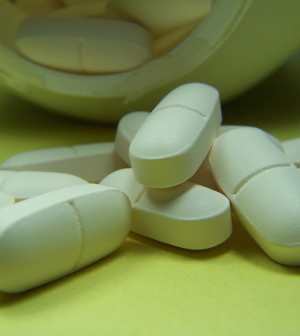- Could Your Grocery Store Meat Be Causing Recurring UTIs?
- Are You Making This Expensive Thermostat Error This Winter?
- Recognizing the Signs of Hypothyroidism
- 10 Strategies to Overcome Insomnia
- Could Artificial Sweeteners Be Aging the Brain Faster?
- Techniques for Soothing Your Nervous System
- Does the Water in Your House Smell Funny? Here’s Why
- Can a Daily Dose of Apple Cider Vinegar Actually Aid Weight Loss?
- 6 Health Beverages That Can Actually Spike Your Blood Sugar
- Treatment Options for Social Anxiety Disorder
Sugary Drink Warnings Hit Home With Teens

Health warning labels can steer teens away from sugary drinks, a new study suggests.
“The average teen in the United States consumes at least one sugar-sweetened beverage every day, which could account for more than twice the recommended daily serving of sugar,” said study lead author Christina Roberto.
Roberto is an assistant professor of medical ethics and health policy at the University of Pennsylvania School of Medicine in Philadelphia.
“The rate of sugar consumption in the U.S. is astounding and contributes significantly to obesity, type 2 diabetes, and other dangerous and costly health conditions,” she added in a university news release.
An online survey was used to assess the hypothetical beverage selections of more than 2,000 youngsters, aged 12 to 18. The drinks had either no label or one of five health warning labels. One label featured calorie content and four carried variations of a written warning that sugary beverages contribute to obesity, type 2 diabetes and tooth decay.
While 77 percent of the participants said they would select a sugary drink if there was no warning label, participants were 8 percent to 16 percent less likely to select a sugary drink that bore such a message, the study found.
The warning labels helped raise teens’ awareness of the health risks of sugary drinks, the study authors noted. Sixty-two percent of the participants said they would support a warning label policy for sugary drinks.
Several U.S. cities and states are currently considering such policies, the researchers said.
The findings highlight the need for nutrition information at the point of purchase to help people make healthier choices, said study co-author Eric VanEpps. He is a postdoctoral researcher at the university’s Center for Health Incentives and Behavioral Economics.
“This study shows that warning labels can affect teenagers’ beverage preferences, and future research will be needed to determine whether these labels are similarly effective in more typical purchasing environments,” he said.
The study was published Sept. 8 in the American Journal of Preventive Medicine.
More information
The American Academy of Pediatrics has more on teens and nutrition.
Source: HealthDay
Copyright © 2026 HealthDay. All rights reserved.










